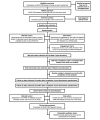The Finding My Way UK Clinical Trial: Adaptation Report and Protocol for a Replication Randomized Controlled Efficacy Trial of a Web-Based Psychological Program to Support Cancer Survivors
- PMID: 34542420
- PMCID: PMC8491121
- DOI: 10.2196/31976
The Finding My Way UK Clinical Trial: Adaptation Report and Protocol for a Replication Randomized Controlled Efficacy Trial of a Web-Based Psychological Program to Support Cancer Survivors
Abstract
Background: Cancer survivors frequently report a range of unmet psychological and supportive care needs; these often continue after treatment has finished and are predictive of psychological distress and poor health-related quality of life. Web-based interventions demonstrate good efficacy in addressing these concerns and are more accessible than face-to-face interventions. Finding My Way (FMW) is a web-based, psycho-educational, and cognitive behavioral therapy intervention for cancer survivors developed in Australia. Previous trials have demonstrated that FMW is acceptable, highly adhered to, and effective in reducing the impact of distress on quality of life while leading to cost savings through health resource use reduction.
Objective: This study aims to adapt the Australian FMW website for a UK cancer care context and then undertake a single-blinded, randomized controlled trial of FMW UK against a treatment-as-usual waitlist control.
Methods: To an extent, our trial design replicates the existing Australian randomized controlled trial of FMW. Following a comprehensive adaptation of the web resource, we will recruit 294 participants (147 per study arm) from across clinical sites in North West England and North Wales. Participants will have been diagnosed with cancer of any type in the last 6 months, have received anticancer treatment with curative intent, be aged ≥16 years, be proficient in English, and have access to the internet and an active email address. Participants will be identified and recruited through the National Institute for Health Research clinical research network. Measures of distress, quality of life, and health economic outcomes will be collected using a self-report web-based questionnaire at baseline, midtreatment, posttreatment, and both 3- and 6-month follow-up. Quantitative data will be analyzed using intention-to-treat mixed model repeated measures analysis. Embedded semistructured qualitative interviews will probe engagement with, and experiences of using, FMW UK and suggestions for future improvements.
Results: The website adaptation work was completed in January 2021. A panel of cancer survivors and health care professionals provided feedback on the test version of FMW UK. Feedback was positive overall, although minor updates were made to website navigation, inclusivity, terminology, and the wording of the Improving Communication and Sexuality and Intimacy content. Recruitment for the clinical trial commenced in April 2021. We aim to report on findings from mid-2023.
Conclusions: Replication studies are an important aspect of the scientific process, particularly in psychological and clinical trial literature, especially in different geographical settings. Before replicating the FMW trial in the UK setting, content updating was required. If FMW UK now replicates Australian findings, we will have identified a novel and cost-effective method of psychosocial care delivery for cancer survivors in the United Kingdom.
Trial registration: International Standard Randomized Controlled Trial Number (ISRCTN) 14317248; https://www.isrctn.com/ISRCTN14317248.
International registered report identifier (irrid): DERR1-10.2196/31976.
Keywords: cancer; digital health; mobile phone; protocol; psychosocial intervention; quality of life; survivorship.
©Nicholas J Hulbert-Williams, Monica Leslie, Lee Hulbert-Williams, Bogda Koczwara, Eila K Watson, Peter S Hall, Laura Ashley, Neil S Coulson, Richard Jackson, Sue Millington, The Finding My Way UK Trial Steering Group, Lisa Beatty. Originally published in JMIR Research Protocols (https://www.researchprotocols.org), 20.09.2021.
Conflict of interest statement
Conflicts of Interest: None declared.
Figures
References
-
- Cancer Statistics for the UK. Cancer Research UK. 2015. [2020-11-26]. https://www.cancerresearchuk.org/health-professional/cancer-statistics-f... .
-
- Patterson P, D'Agostino NM, McDonald FE, Church TD, Costa DS, Rae CS, Siegel SE, Hu J, Bibby H, Stark DP, International AYA Cancer Distress Screening Group Screening for distress and needs: Findings from a multinational validation of the Adolescent and Young Adult Psycho-Oncology Screening Tool with newly diagnosed patients. Psychooncology. 2021 Jun 23;:5757. doi: 10.1002/pon.5757. - DOI - PMC - PubMed
LinkOut - more resources
Full Text Sources
Miscellaneous


